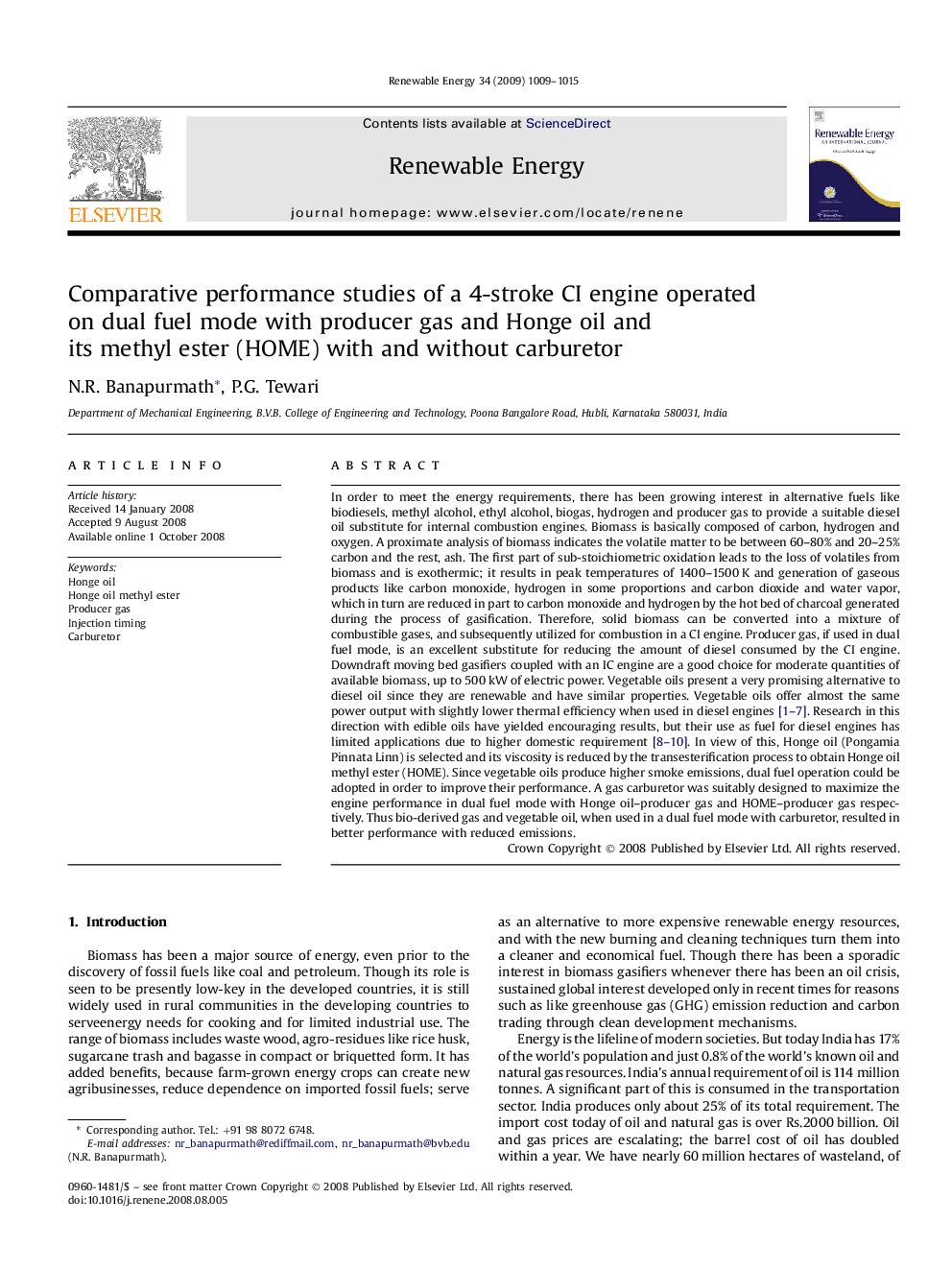| کد مقاله | کد نشریه | سال انتشار | مقاله انگلیسی | نسخه تمام متن |
|---|---|---|---|---|
| 302019 | 512525 | 2009 | 7 صفحه PDF | دانلود رایگان |

In order to meet the energy requirements, there has been growing interest in alternative fuels like biodiesels, methyl alcohol, ethyl alcohol, biogas, hydrogen and producer gas to provide a suitable diesel oil substitute for internal combustion engines. Biomass is basically composed of carbon, hydrogen and oxygen. A proximate analysis of biomass indicates the volatile matter to be between 60–80% and 20–25% carbon and the rest, ash. The first part of sub-stoichiometric oxidation leads to the loss of volatiles from biomass and is exothermic; it results in peak temperatures of 1400–1500 K and generation of gaseous products like carbon monoxide, hydrogen in some proportions and carbon dioxide and water vapor, which in turn are reduced in part to carbon monoxide and hydrogen by the hot bed of charcoal generated during the process of gasification. Therefore, solid biomass can be converted into a mixture of combustible gases, and subsequently utilized for combustion in a CI engine. Producer gas, if used in dual fuel mode, is an excellent substitute for reducing the amount of diesel consumed by the CI engine. Downdraft moving bed gasifiers coupled with an IC engine are a good choice for moderate quantities of available biomass, up to 500 kW of electric power. Vegetable oils present a very promising alternative to diesel oil since they are renewable and have similar properties. Vegetable oils offer almost the same power output with slightly lower thermal efficiency when used in diesel engines [1], [2], [3], [4], [5], [6] and [7]. Research in this direction with edible oils have yielded encouraging results, but their use as fuel for diesel engines has limited applications due to higher domestic requirement [8], [9] and [10]. In view of this, Honge oil (Pongamia Pinnata Linn) is selected and its viscosity is reduced by the transesterification process to obtain Honge oil methyl ester (HOME). Since vegetable oils produce higher smoke emissions, dual fuel operation could be adopted in order to improve their performance. A gas carburetor was suitably designed to maximize the engine performance in dual fuel mode with Honge oil–producer gas and HOME–producer gas respectively. Thus bio-derived gas and vegetable oil, when used in a dual fuel mode with carburetor, resulted in better performance with reduced emissions.
Journal: Renewable Energy - Volume 34, Issue 4, April 2009, Pages 1009–1015